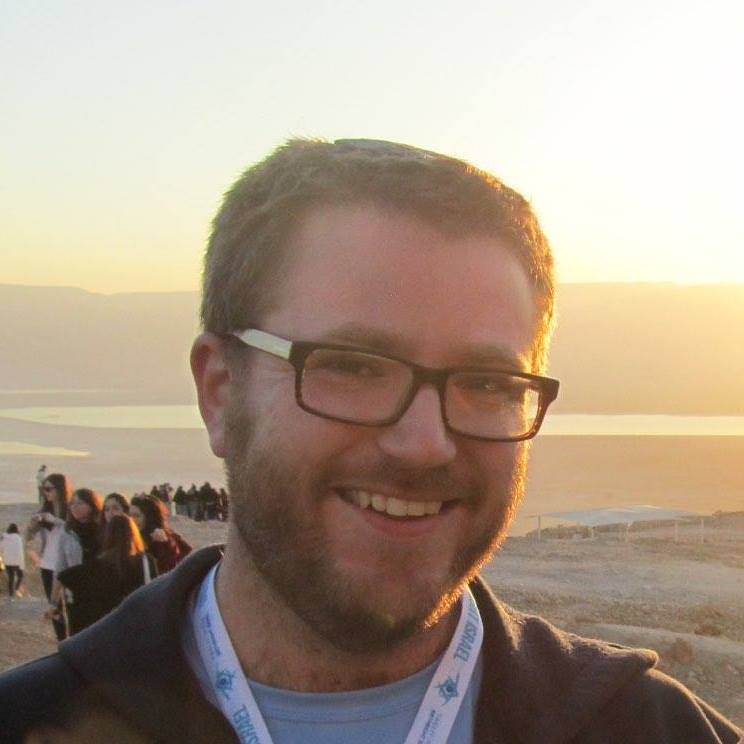Please enjoy a D’var Torah this week from Jeremy Fineberg. Jeremy is an alumnus of Brandeis University and is currently in his third year of Rabbinical School at the Jewish Theological Seminary of America. Jeremy currently serves as the Slifka Rabbinic Fellow at the Hillel at Binghamton University. A lifelong Ramahnik, Jeremy has been a counselor, rosh edah, and most recently the program director at Camp Ramah in Wisconsin. Reflections on Parashat Vayeitzei By Jeremy Fineberg
In a number of the stories in B’reishit (Genesis), our ancestors interact with angels. Abraham and Sarah, Hagar, Lot, Jacob, and others have encounters with these divine beings. During most of these encounters, the angels fulfill some specific purpose. Often they bring promise of children or success, protection from harm, or reveal a truth that our ancestor had not known. Most importantly, the angels always serve some clear message.
However, in this week’s parsha (Torah portion), Vayeitzei, Jacob has an encounter with angels without a completely obvious purpose. As he is running away from his family home in Be’er Sheva after stealing the blessing from Esau, Jacob spends the night in an unspecified location (מקום). While there, he has an incredible vision:
וַֽיַּחֲלֹ֗ם וְהִנֵּ֤ה סֻלָּם֙ מֻצָּ֣ב אַ֔רְצָה וְרֹאשׁ֖וֹ מַגִּ֣יעַ הַשָּׁמָ֑יְמָה וְהִנֵּה֙ מַלְאֲכֵ֣י אֱלֹהִ֔ים עֹלִ֥ים וְיֹרְדִ֖ים בּֽוֹ׃ [Jacob] had a dream; a stairway was set on the ground and its top reached to the sky, and angels of God were going up and down on it. (Gen. 28:12)
The beautiful visual of a ladder serving as a direct conduit between heaven and earth has captured imaginations for generations. However, since the angels do not directly interact with Jacob, one wonders what was the purpose of the vision? Clearly there must be some message in this encounter between humanity and divinity. Thankfully a few verses later we get an answer. Once Jacob awakes from his dream he exclaims to himself “
אָכֵן֙ יֵ֣שׁ יְהוָ֔ה בַּמָּק֖וֹם הַזֶּ֑ה וְאָנֹכִ֖י לֹ֥א יָדָֽעְתִּי … מַה־נּוֹרָ֖א הַמָּק֣וֹם הַזֶּ֑ה (Gen. 28:15-16). “Surely the LORD is present in this place (מקום) and I did not know it! How awesome is this place (מקום)?!”
While there are many ways of understanding Jacob’s exclamation, I want to focus on two ways of reading what Jacob meant by מקום (makom) place. The first is identifying מקום as the same מקום that Abraham saw in Gen. 22:4, the site of the Akeidah (binding of Isaac), which is identified as Mount Moriah. Jacob’s interaction with the divine at that place makes Jacob aware of the holiness of that particular spot. The second way of reading מקום is that the literal meaning of the word is correct. מקום means place, and could therefore refer to any place. This interpretation teaches us that every space is holy, because any place can be a connector of heaven and earth, and an encounter with the divine can happen anywhere. For me, this second reading is more compelling; this encounter with divinity is about teaching Jacob, and us, that holiness exists everywhere, and we only have to let ourselves realize and become attuned to it.
Whenever I read stories about angels, I’m reminded of a tradition that started a few years ago during seudah shlishit, the meal at the end of Shabbat when we sing beautiful songs as the sun sets. The song בשם השם (B’shem Hashem) names the four most important angels of the Jewish tradition and where (right, left, in front of, and behind) those angels stand when they guard and protect an individual. When we sing this song at camp, campers and staff often motion in the direction and put their arms around the people next to them as we sing about the angels surrounding us. On the one hand, it’s a classic cute action by Ramahniks, applying their ever-increasing Hebrew knowledge and acting out those words. However, as someone who has the privilege of facilitating and watching a room full of 100 campers put their arms around each other as they beautifully sing the names of angels, I can’t help but believe they are revealing a stunning truth. They are calling the community that they have built a community of angels. In those precious moments, they become attuned to the idea that holiness surrounds them, and that their encounter with each other is divine. While many Ramahniks, myself included, will tell you that camp is itself a holy place, the real secret of Ramah is in teaching and facilitating the moments like the singing of בשם השם as the sun sets over Lake Buckatabon. Moments that teach us that it is not just this particular מקום that is holy, not just this particular time, not just these people, but that all of the מקומות (places) where we build real community are holy. Every encounter, even the ones that might seem message-less, can be an opportunity to experience the Divine.






